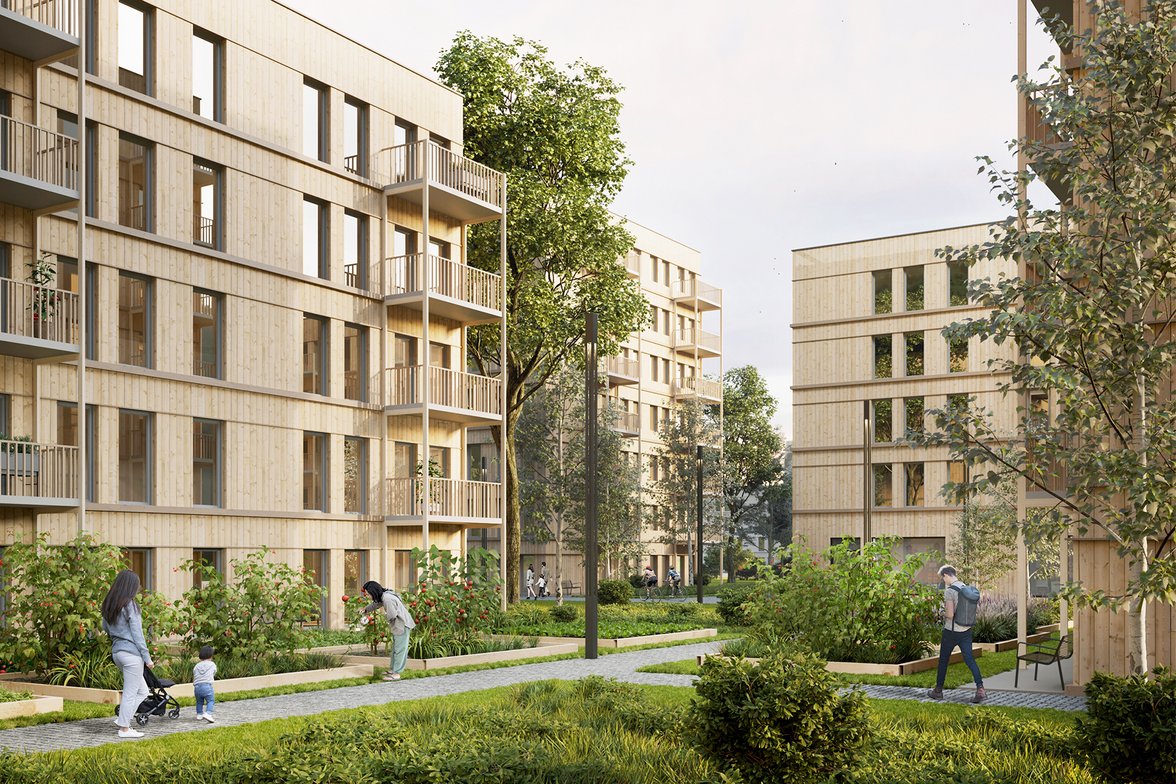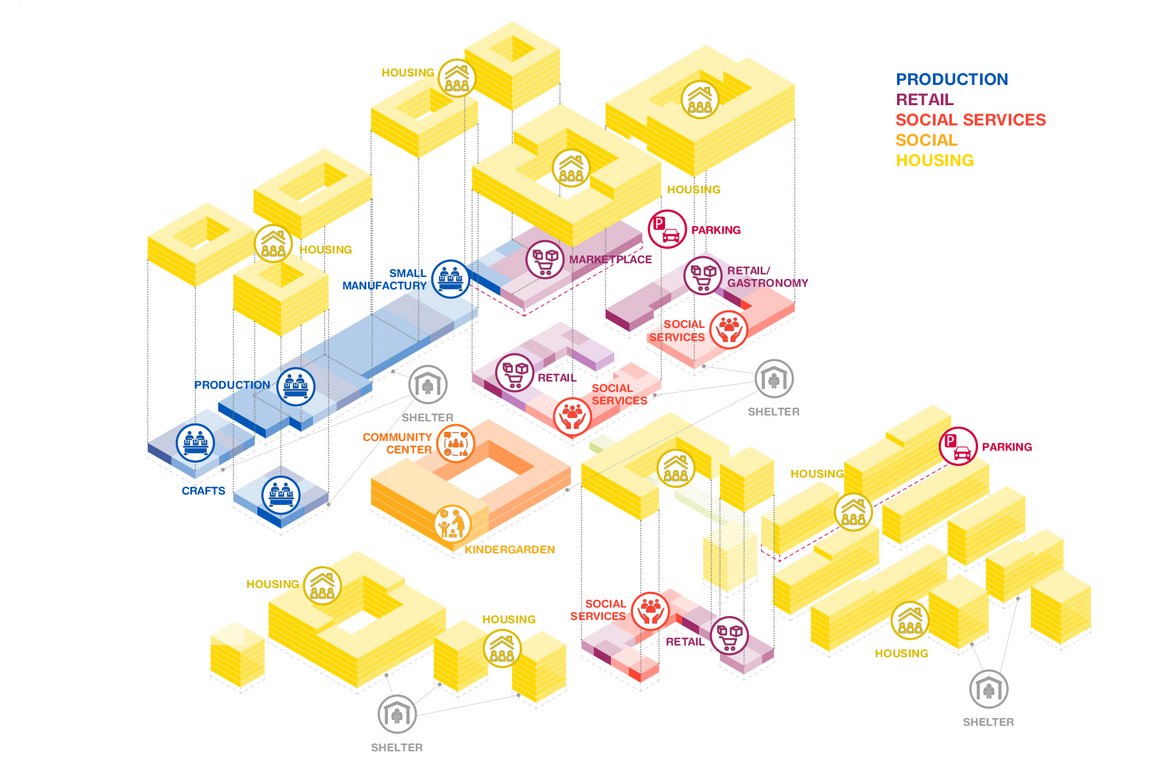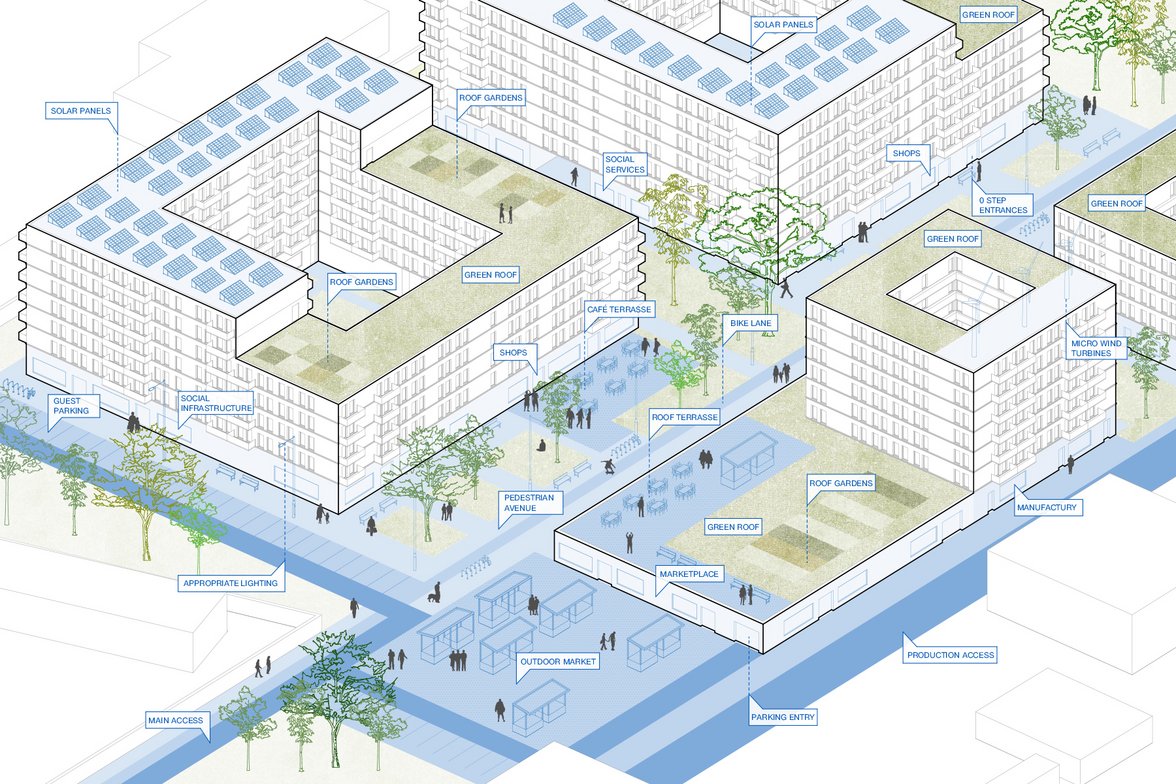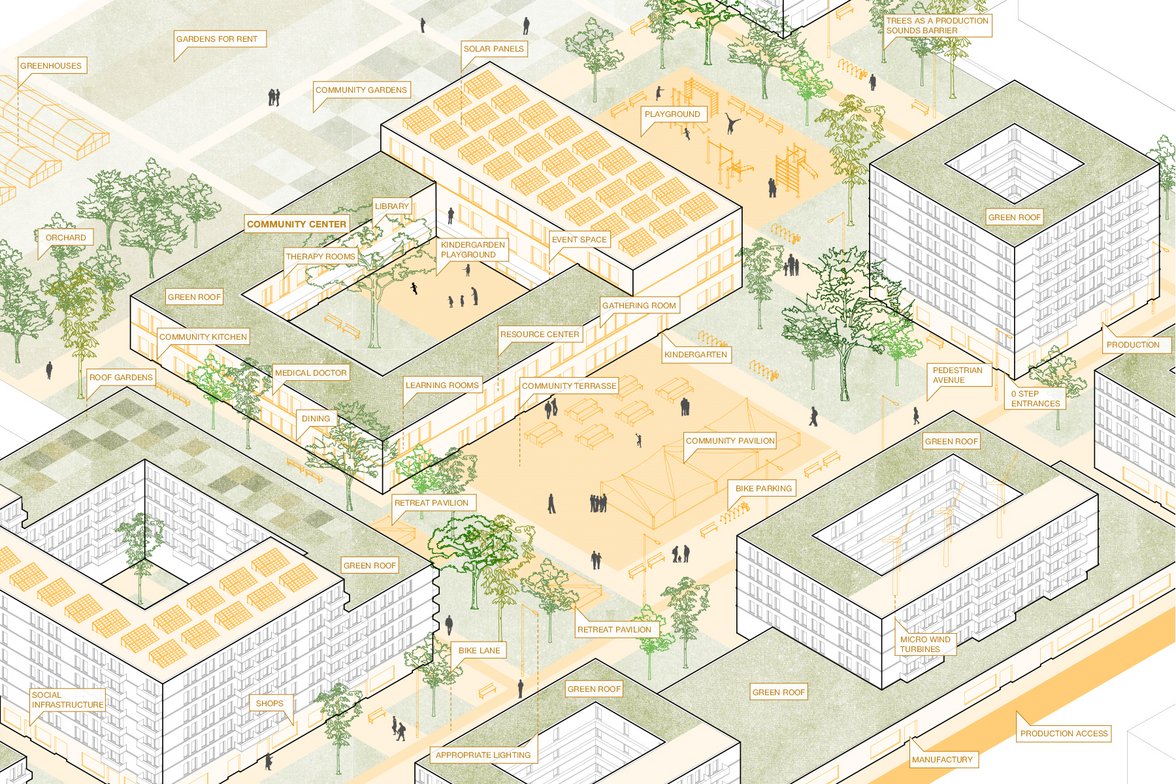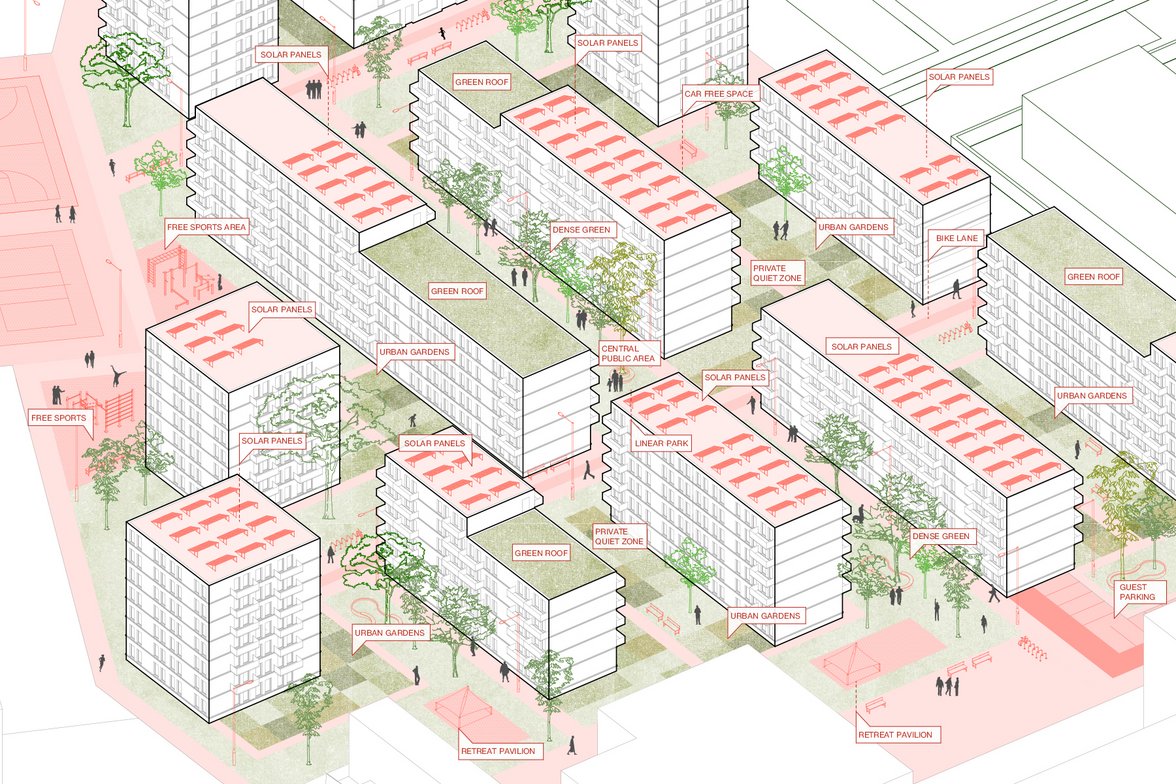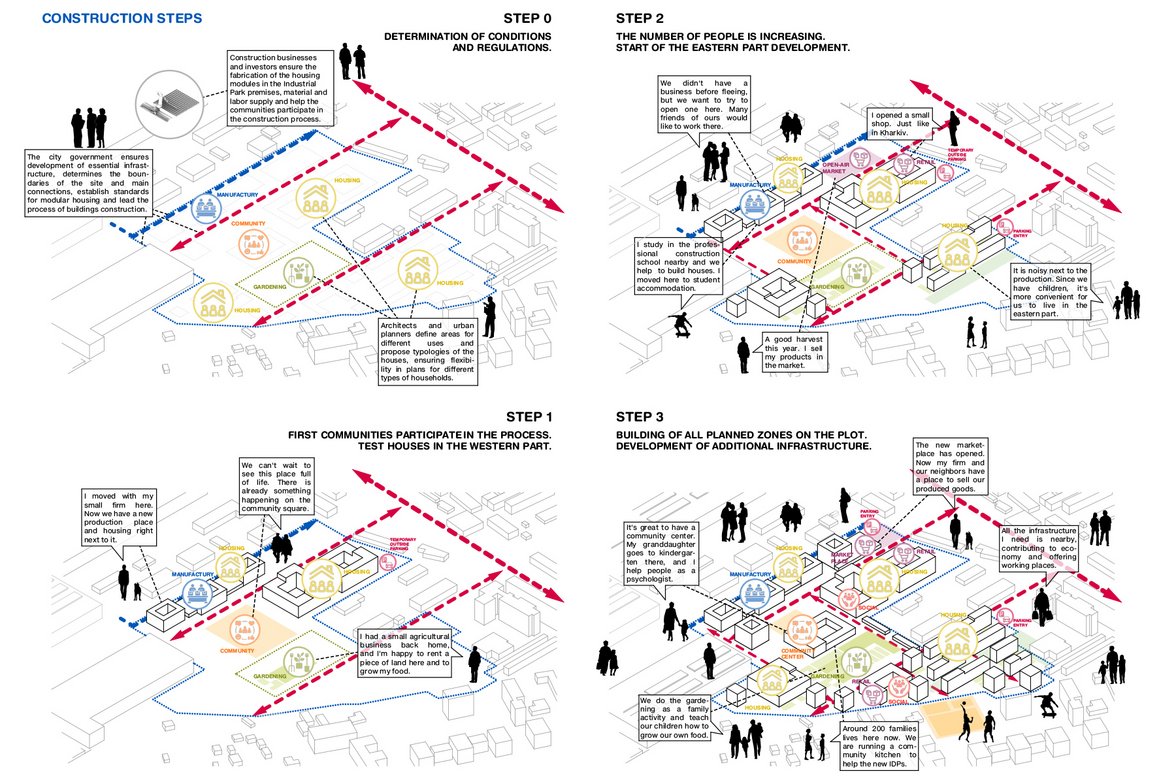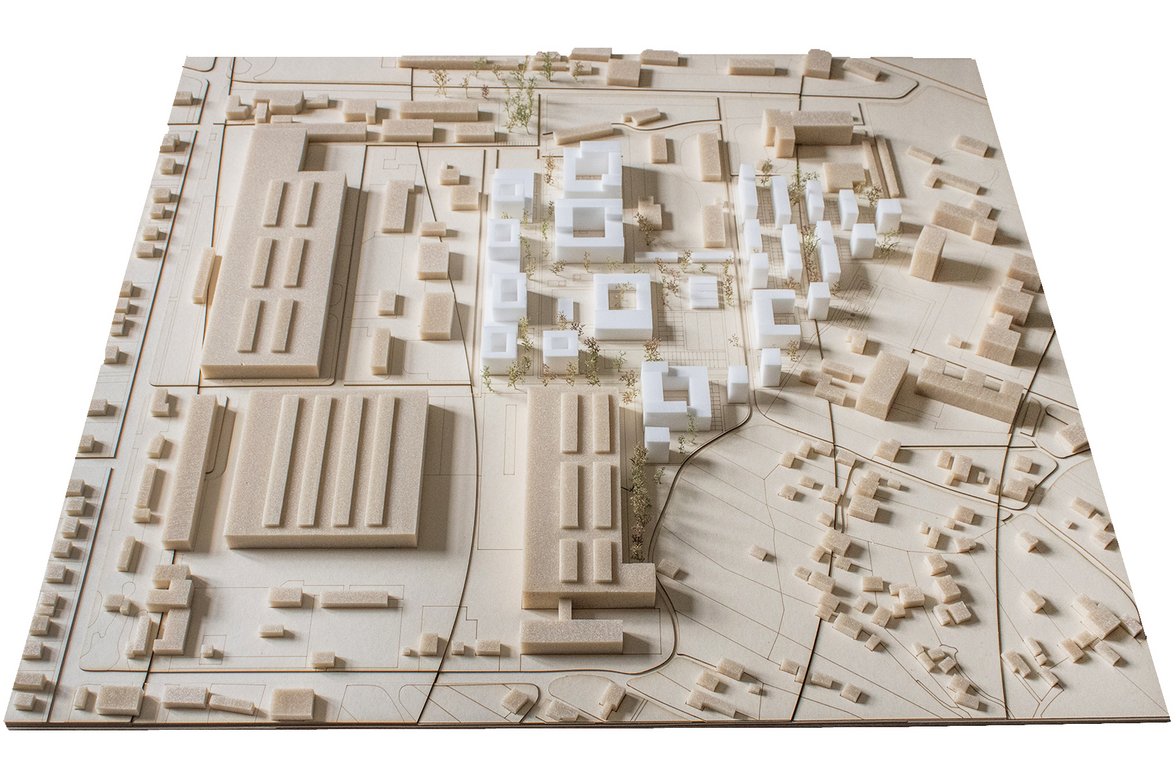From Shelter to Home
freie Masterthesis (SS24)
Zoreslava Marchuk
FROM SHELTER TO HOME
Adaptable Modular Solutions for War-Affected Communities.
Productive Living Neighborhood in Ivano-Frankivsk, Ukraine.
The ongoing war in Ukraine has displaced millions, creating an urgent need for adaptable housing solutions that extend beyond temporary shelters. This thesis explores how modular housing can meet these needs, focusing on Ivano-Frankivsk as a case study. The project aims to establish essential residential infrastructure for internally displaced persons (IDPs) while also fostering new social dynamics within the community.
The thesis includes theoretical analysis and design proposals for a “Productive Living Neighborhood” that offers more than just shelter; it works towards creating a community where people can live, work, rebuild their lives, and actively participate in decision-making processes. The work aims to show how modular solutions can be key to rehabilitating communities when combined with a sustainable social, economic, and energy program on an urban scale. Providing spaces for various activities will address the long-term recovery of displaced communities and the future needs of the city in the aftermath of the war.
The neighborhood's layout prioritizes energy and food independence, integrating sustainable energy systems and local food production areas to help communities become self-sufficient and less reliant on external support. In addition to addressing physical needs, this thesis also explores the psychological challenges faced by IDPs, such as the need for a stable environment, community connection, and personal autonomy. A key benefit of modularity, beyond quick construction, is that it allows displaced individuals to participate in building their homes and make decisions about the spaces they require.
The modular solutions were developed through a collaborative process, with valuable input from students Rodion Kosmin and Dawid Mazanek, who undertook a Free Project at the Chair of Digital Fabrication (Prof. Dr. Kathrin Dörfler). Their insights on construction techniques, material use, and the prefabrication process helped ground the project in realistic, community-focused design. By combining these modular approaches with the thesis research, the work offers a practical framework for resilient housing solutions.
Through this thesis, the vision of modular housing is extended beyond traditional boundaries, illustrating a model that empowers displaced communities and adapts to their evolving needs over time. This work can also provide a foundation for future development projects aimed at rebuilding resilient communities in conflict-affected areas using modular solutions.
